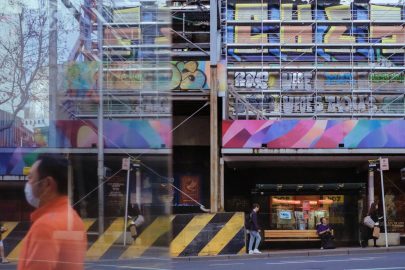Dec 15, 2020 Property
With building consents for multi-unit dwellings at an all-time high, many more New Zealanders will find themselves in the position of buying a new home off the plans.
It’s a challenging thing to do and it isn’t necessarily getting any easier. The contract will always be heavily weighted in favour of the developer, so buyers need to get solid legal advice before signing. Using a lawyer who has experience of apartment developments is probably a good idea. The sales material for an off-the-plans development will be little more than an artist’s impression. The developer may or may not have obtained resource consent for the project. There will almost certainly be a level of pre-sales required before the development goes ahead, and the first sod may not be turned for months. The developer will reserve the right to alter the size of the apartment and the layout of the complex as the project progresses.
POSTER: A region-wide visual guide to the most expensive areas in Auckland
There are key things buyers should be on the alert for. Ideally the contract should contain a sunset clause that allows them to pull out of the deal and get their deposit back if there’s no sign of action within a certain timeframe. Look out for ‘entire agreement’ clauses. These mean the sales agents can tell interested buyers whatever they like about the yet-to-be-built development, but it won’t necessarily be included in the final contract. Other minimum clauses are that the buyer’s deposit is held in a trust account with the interest earned paid to them; that there is a maintenance period after the building is completed during which the developer must fix any problems; and if the apartment specifications fall short of what was promised the buyer is credited for that loss. Buyers should also check out the developer’s background. Some have bad track records for failed projects, lengthy delays, and leaky buildings, and projects by these people are best avoided.
Average sale price & weekly rent data for a 3 bedroom property in Auckland
(Central Suburbs, Eastern Suburbs, Franklin/Manukau Rural, North Shore, Pakuranga)
Average sale price & weekly rent data for a 3 bedroom property in Auckland (cont’d)
(Rodney, South Auckland, West Auckland)
Talk of LVRS resurfacing for home mortgages unnecessary
The era of the average sales price of Auckland residential property exceeding $1 million has begun with October’s average sales price hitting $1,045,104. At the same time the median price set a new high of $967,000.
There is nothing really significant in the average price moving above $1 million, and in fact about a third of all the homes we sell currently are priced above that mark. However, such numbers are milestones that get noticed, and are naturally commented on.
What is worthy of note is how quickly the $1million mark has come into focus again following the dip in the average price to below $950,000 in May, when the effects of the first lockdown were being felt.
At that time no-one was predicting the market recovering anytime soon and the speed of recovery, and the size of the price increases now being recorded, has caught everyone by surprise.
It has led to a signal from the Reserve Bank that the lending restrictions which were eased in April and were not due for review until April next year, could be back by March 2021. Whether action is required is debatable. Inevitably, the focus of concern is investors and whether this group is causing the latest price increases.
However, a review of Reserve Bank data for mortgage lending in September challenges this perception and it certainly does not show investors dominating lending, or lending to this group being widely out of line with what it was in September 2019.
In September this year investors borrowed 23% of all new mortgages (by value). In September last year it was 19.5%.
The vast majority of borrowings in September this year, at 57.4%, were owner occupiers. 19.1% were first time buyers and 0.8% was borrowing for business reasons.
Reimposing strict loan to value ratios will, as it did previously, seriously impact first-time buyers, and also make life more challenging for existing homeowners who may be seeking to take the next step in terms of their living arrangements. As Auckland has matured into a relatively large, international city, people are changing their attitudes to what is regarded as the ideal home.
Inner city living, apartments, lock-up-and-leave convenience, retirement village living, larger homes, smaller homes, less garden, more modern and low maintenance, access to public transportation and transport corridors, indoor/outdoor living and school zoning are all factors that are becoming more relevant to people than they were a decade ago.
Home owners reacting to these new options are leading to property turnover.
Reintroducing harsh loan-to-value ratios is a blunt instrument that rations mortgages and, in the process, restricts people’s options. In September, three quarters of the money borrowed was by first time buyers or owner occupiers. In buying at current prices they were expressing confidence in the future of the housing market and acknowledging the importance property was to their future plans. If they have the means to meet the repayments, why prevent them getting on with their plans?
This article was created in partnership with Barfoot & Thompson.






